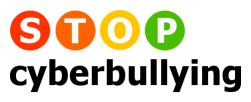 |
what is it? :: how it works :: why cyberbully? :: prevention :: take action :: what's the law?
![]() In this section:
In this section:
What is the parent's role in this? :: What is the school's role in this?
What's the Parents' Role in This?
Parents need to be the one trusted place kids can go when things go wrong online and offline. Yet they often are the one place kids avoid when things go wrong online. Why? Parents tend to overreact. Most children will avoid telling their parents about a cyberbullying incident fearing they will only make things worse. (Calling the other parents, the school, blaming the victim or taking away Internet privileges.) Unfortunately, they also sometimes underreact, and rarely get it "just right." (You can read more about this in "Not Too Hot, Not Too Cold! Goldilocks and the CyberParents")
Parents need to be supportive of your child during this time. You may be tempted to give the "stick and stones may break your bones, but words will never hurt you" lecture, but words and cyberattacks can wound a child easily and have a lasting effect. These attacks follow them into your otherwise safe home and wherever they go online. And when up to 700 million accomplices can be recruited to help target or humiliate your child, the risk of emotional pain is very real, and very serious. Don't brush it off.
Let the school know so the guidance counselor can keep an eye out for in-school bullying and for how your child is handling things. You may want to notify your pediatrician, family counselor or clergy for support if things progress. It is crucial that you are there to provide the necessary support and love. Make them feel secure. Children have committed suicide after having been cyberbullied, and in Japan one young girl killed another after a cyberbullying incident. Take it seriously.
Parents also need to understand that a child is just as likely to be a cyberbully as a victim of cyberbullying and often go back and forth between the two roles during one incident. They may not even realize that they are seen as a cyberbully. (You can learn more about this under the "Inadvertent Cyberbully" profile of a cyberbully.)
We have a quick guide to what to do if your child is being cyberbullied: Your actions have to escalate as the threat and hurt to your child does. But there are two things you must consider before anything else. Is your child at risk of physical harm or assault? And how are they handling the attacks emotionally?
If there is any indication that personal contact information has been posted online, or any threats are made to your child, you must run.do not walk, to your local law enforcement agency (not the FBI). Take a print-out of all instances of cyberbullying to show them, but note that a print-out is not sufficient to prove a case of cyber-harassment or cyberbullying. You'll need electronic evidence and live data for that. (You may want to answer the questions on our checklist for helping spot the difference between annoying communications and potentially dangerous ones. But remember, if in doubt, report it.)
Let the law enforcement agency know that the trained cyber-harassment volunteers at WiredSafety.org will work with them (without charge) to help them find the cyberbully offline and to evaluate the case. It is crucial that all electronic evidence is preserved to allow the person to be traced and to take whatever action needs to be taken. The electronic evidence is at risk for being deleted by the Internet service providers unless you reach out and notify them that you need those records preserved. The police or volunteers at WiredSafety.org can advise you how to do that quickly. Using a monitoring product, like Spectorsoft, collects all electronic data necessary to report, investigate and prosecute your case (if necessary). While hopefully you will never need it, the evidence is automatically saved by the software in a form useable by law enforcement when you need it without you having to learn to log or copy header and IP information.
![]()







contact us :: volunteer :: media
privacy policy :: terms of use